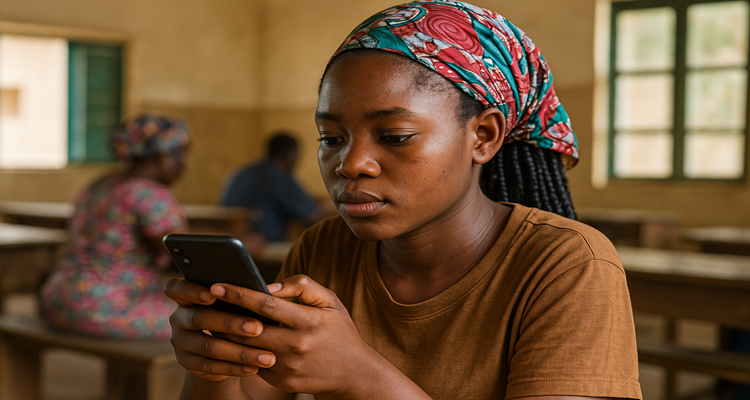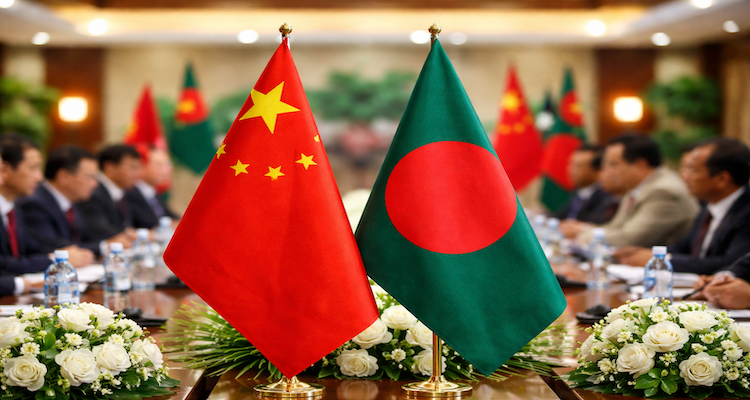Africa’s Digital Divide Threatens Its AI Future

Africa stands on the edge of an AI revolution—but with 860 million people still offline, the continent risks being left behind. Here’s how connectivity, skills, and policy could shape its digital destiny.
A Revolution Out of Reach
In the bustling streets of Lagos, Nairobi, and Accra, young entrepreneurs are coding the future of Africa. Yet, beyond these cities, millions remain in digital silence. In 2024, only 38% of Africans had internet access, half the global average. Despite living in the world’s youngest and most dynamic region, more than 860 million Africans remain offline, disconnected from the digital tools that could transform their lives.
For 20-year-old Rita from northern Nigeria, the promise of the internet is a world away. She owns a mobile phone but struggles to use it, lacking basic literacy skills. Her story reflects a wider reality where access alone isn’t enough without the ability to use technology effectively.
The Connectivity Conundrum: Progress Amid Gaps
Africa’s digital story is one of paradox. Over the past decade, internet coverage has expanded dramatically. Between 2016 and 2021, user rates in Western and Central Africa nearly doubled from 23% to 47%. Eastern and Southern regions followed with similar growth. Submarine cables along coastal nations like Sierra Leone, Senegal, and Togo boosted broadband speeds more than threefold, while Nigeria’s 4G reach jumped from 41% in 2019 to 84% in 2024.
Yet, access does not equal usage. Despite widespread network coverage, affordability, unreliable electricity, and low digital literacy continue to isolate millions. In many communities, smartphones are available but underutilized, and even basic data plans remain financially out of reach for low-income families.
“Connectivity has improved,” says Dr. Angela Mwangi, a Nairobi-based digital policy expert. “But for most Africans, the internet remains a luxury, not a daily utility.”
Africa’s Emerging AI Landscape
While much of the world debates the ethics of artificial intelligence, Africa is still fighting for inclusion in the conversation. The African Union’s Continental AI Strategy, approved in 2024, seeks to make the continent “a leader in inclusive and responsible AI development.” The vision is ambitious and necessary.
Africa’s AI market is projected to hit US$16.35 billion by 2030, growing at over 27% annually. More than 2,400 AI-related startups now operate across healthcare, agriculture, fintech, and education sectors. Nigeria leads the charge with about 400 companies, followed by Kenya and South Africa. However, 63% of these enterprises remain in early development, struggling with funding, infrastructure, and access to skilled talent.
Oxford Insights’ AI Readiness Index 2023 rated sub-Saharan Africa at a low score of 30, signaling structural challenges in governance, innovation, and data capacity.
The AI Divide: Connectivity, Data, and Skills
Artificial intelligence thrives on three things: connectivity, data, and skills, all in short supply across much of Africa.
-
Limited Reach: With less than 40% of the population online, AI-powered tools reach only a fraction of users, mostly urban and affluent. Rural areas remain largely excluded.
-
Data Drought: Africa contributes just 0.02% of global digital content, and few AI models are trained in African languages. This gap weakens the accuracy of speech recognition, translation, and diagnostic systems built for local contexts.
-
Skills Shortage: Offline communities seldom develop coding or AI expertise. As a result, innovation ecosystems cluster in a few tech-savvy countries, leaving millions without the skills to participate in or benefit from digital growth.
-
Infrastructure Barriers: The continent hosts fewer than 100 large-scale data centers mostly in Nigeria, South Africa, and Kenya, while nearly 600 million Africans still lack reliable electricity.
-
Economic Cost: Africa captures only 2.5% of global AI investment. Studies show a 10% increase in broadband penetration could raise GDP per capita by 2.5%, underscoring the high price of the digital gap.
Bridging the Divide: Solutions on the Horizon
Despite the challenges, momentum is building. Governments, international organizations, and private innovators are rolling out solutions to close the digital gap and prepare Africa for the AI era.
-
Infrastructure Expansion
New undersea cables and fiber networks are lowering costs and improving speeds. Satellite internet projects like SpaceX’s Starlink and Africa-focused providers such as Liquid Intelligent Technologies are extending coverage to remote areas.
-
Affordable Access Models
Initiatives such as Ghana’s Uniti Networks are making smartphones affordable through installment plans for farmers and rural families. Several nations, including Kenya and Rwanda, have slashed import taxes on devices to improve affordability.
-
Digital Literacy and Skills Development
Programs like the World Bank’s Inclusive Digitalization initiative and IBM’s Digital Nation Africa are training thousands of young Africans in data science, AI, and cloud computing. Rwanda, Ghana, and Egypt have integrated coding and digital literacy into school curricula.
-
Inclusion and Policy Reform
Governments are promoting public Wi-Fi, supporting GSMA-led training for women and refugees, and investing in national ID and payment systems. The African Union’s 2030 Digital Strategy and the World Bank’s Digital Economy for Africa (DE4A) initiative aim to create a unified digital market across the continent.
Expert Voices: Hope and Warning
According to Dr. Bright Simons, founder of mPedigree and an advocate for African digital inclusion, “AI could redefine Africa’s development story but only if it’s built on a foundation of digital equity. Otherwise, we’ll replace one divide with another.”
Economist Fatoumata Diarra adds, “Connectivity is not just about access; it’s about participation. Every offline citizen represents a lost data point, a lost entrepreneur, a lost innovation.”
The Road Ahead: Empowerment Through Inclusion
The stakes are high. Africa’s young population, over 60% under the age of 25, holds the potential to become the most dynamic AI-driven workforce in the world. But without urgent action to expand internet access, strengthen infrastructure, and promote digital literacy, this potential could slip away.
Bridging the digital divide is no longer just a matter of technology; it’s a matter of justice, equity, and opportunity. If Africa can connect its people, empower its youth, and localize its data, it can not only catch up with the AI revolution but help shape it on its own terms.
Africa’s Digital Destiny
Africa stands at a pivotal crossroads. One path leads to innovation, inclusion, and shared prosperity; the other, to exclusion and dependency. The continent’s success in the AI era will depend on how quickly it can bridge its connectivity and skill gaps. The next generation is ready. The challenge now is to connect them to the tools that can unlock their future.
(Disclaimer: This article is an original, research-based journalistic analysis intended for informational purposes only. It draws on verified data, expert commentary, and development reports to ensure factual accuracy and integrity.)
ALSO READ: Why Every Device Has a Secret Personality









